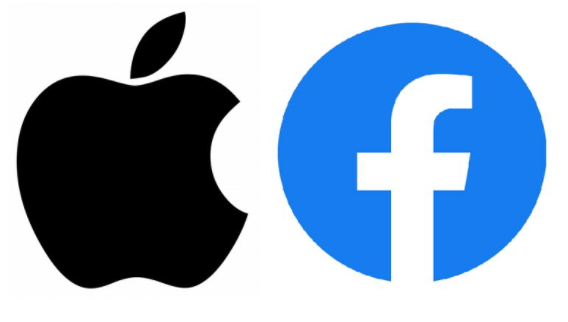It is common in the IT industry for laws to not keep up with technological advances. So, when a new technology emerges, there is no law to regulate it for the time being. However, after these “good times” have passed, regulations are created, and disputes arise between stakeholders.
Facebook founder Mark Zuckerberg declared a 'war' against Apple. The reason for the declaration of war is interesting. It is because of the user's data.
Apple said that starting in 2021, it will put a process for obtaining user consent when app developers track iPhone users' data. It is intended to protect users' information. However, Facebook is currently running an advertising business based on users’ data. If Apple strengthens the protection of user information, it is difficult for Facebook to an advertising business based on users’ data. For Facebook, it is a very important matter.
The New York Times reported in an article on December 16 that 'depending on which company wins this dispute, the appearance of the Internet may change over the next several years.' Until now, users have agreed to track their information when installing the Facebook app without thinking. However, if another procedure is added in the future, it is expected that many users will not agree to the collection of their information.
Apple is making enough profits with the iPhone, iPad and MacBook. Therefore, it is not necessary for Apple to collect users’ data. But for Facebook, things are completely different. Facebook, which doesn’t have its own hardware, is running a platform business and advertise business. If Facebook doesn't get user information, the advantage of having a huge number of users would be overshadowed. Because of this, Mark Zuckerberg even instructed Facebook executives and emplyees to use Android phones rather than iPhones.
By the way, there is a problem in their dispute. These things are done without the opinions of users. Not long ago, an incident occurred in which platform companies in various countries, including Facebook, used personal information inappropriately. There was also an incident in which the personal information of tens of millions of people using Facebook was leaked.
Apple CEO Tim Cook said, "Apple doesn't trade users' privacy. For Apple, personal information is human rights and citizenship." This is a good word to hear. But if you think more about it, since Apple is a hardware company, they can get various data through the hardware that they sell without going through a specific app.
Facebook has placed full-page advertisements in major US media. In an advertisement, Facebook claimed, "Apple is using the App Store to engage in anti-competitive actions that increase their profits at the expense of developers and small businesses." Facebook predicts that if advertising is not optimized for users, advertisers will see a drop in sales of more than 60% per dollar of advertising.
The problem is that there is no awareness of users' rights about big data in this war. Apple emphasizes users’ rights, but you need an Apple ID to use Apple devices. And Apple collects and uses various user data through essential apps installed on the device. And Facebook says they are concerned about small business owners, but they have never paid general users a monetary reward for the big data they collected.
Let’s think about this. The right to users’ information rests with the user. Big data created with it must also be used with the consent of the user. But what are we seeing now?
Apple is trying to exclude other platforms while collecting users' personal information as a bait for hardware. Facebook is trying to collect more personal information and use it in its advertising business. In these disputes, the rights of users are not an important factor. This is why it is very bitter to watch this 'war'.
 |
김창훈 기자 changhoon8@gamevu.co.kr
<저작권자 © 게임뷰, 무단 전재 및 재배포 금지>

![[포토] X-PLANET, 첫 단독 팬미팅 앞둔 ‘후뢰시맨’ 배우 입국 현장](/news/photo/202404/32440_86387_5027.jpg) [포토] X-PLANET, 첫 단독 팬미팅 앞둔 ‘후뢰시맨’ 배우 입국 현장
[포토] X-PLANET, 첫 단독 팬미팅 앞둔 ‘후뢰시맨’ 배우 입국 현장




![[포토] 카카오게임즈 '아키에이지 워', 대만 쇼케이스 성료](/news/thumbnail/202404/32529_86732_3127_v150.jpg)
![[포토] '오버워치 챔피언스 시리즈(OWCS)' 아시아 본선에 나서는 한국팀들](/news/thumbnail/202404/32461_86464_3811_v150.jpg)
![[포토] X-PLANET, 첫 단독 팬미팅 앞둔 ‘후뢰시맨’ 배우 입국 현장](/news/thumbnail/202404/32440_86387_5027_v150.jpg)
![[포토] 던전에서 오프라인으로 출몰한 '나 혼자만 레벨업:어라이즈'](/news/thumbnail/202404/32347_86168_2143_v150.jpg)



